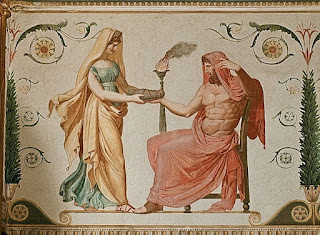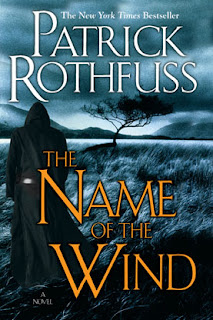Reading Notes: Jakakas Anthology
The Foolish, Timid Rabbit
Story about a rabbit who feared the world was going to end. A coconut drops on the ground behind him and he thinks the noise is the world ending. He runs away and through his false belief, convinces everyone else that the world is ending and causes chaos. The wise character (a lion) stops everyone and gets to the bottom of the issue. The lesson seems to be to not let fear or emotion guide you instead of reason and logic.
The Turtle And The King
The king's children mistake a turtle for a demon and the king ordered the turtle "demon" to be captured and killed. While the men were discussing how to kill the turtle, one suggests throwing him into the water that runs through a bunch of rocks, something that surely had killed several humans before. The turtle sees his chance and begs not to be thrown there, attempting to make it seem like such a decision who kill him. The king orders the men to do that and the turtle is thrown in the water where he is safe. The lesson may be to play on people's fear to get out of a bad situation?
The Turtle And The Geese
A turtle and two geese become friends. The geese offer to take the turtle to their beautiful home. To do so, the turtle must bite on a stick while the geese fly the stick and turtle to their home. If the turtle lets go of the stick, he will die. As they are flying above a group of children, the children make fun of them. The turtle then attempts to rebuke the children, but by speaking, he lets go of the stick and falls to his death. The lesson here is to not recklessly respond to the remarks of other people.
The Cunning Crane And The Crab
This story is about an evil crane who convinces a bunch of fish in a dying pond to get in his mouth so that the crane can take them to a beautiful lake. The crane tricks them and ends up eating all the fish. The crane is still hungry and is foolishly convinced by a clever crab to let the crab hang on to the crane's neck while he flies them to the new lake. Once the crane gets them there, the crab snips off the crane's neck and the crab enjoys his new home. The lesson may be to play along with a trickster's trick and try to catch them in their trap?
The Crocodile And The Monkey's Heart
In this story, a crocodile attempts to steal a monkey's heart for his wife. After getting the monkey on his back in the middle of the water, the crocodile reveals his plan. The monkey cleverly lies to the crocodile and convinces him that his heart is hiding among the trees. The crocodile takes the monkey over to where his "heart" is and the monkey escapes. I'm not sure what the lesson is here. However, the monkey is supposed to be one of the incarnations of the Buddha, so maybe it's just to show how clever the Buddha is?
The Crocodile In The River
Very similar to The Crocodile And The Monkey's Heart. The Buddha-As-Monkey tricks the crocodile again and leaps away. The four virtues were brought up in this story and could very likely be used in future stories.
The Monkey Who Gathered Lotuses
In this story the antagonist, Devadatta who is the Buddha's rival, births many sons (one of which is the Buddha-As-Monkey) and resolves to kill all of them in fear that one may grow up to kill and replace him as king. Devadatta's wife flees to a forest to give birth to the Buddha. The Buddha grows up here and through some plot devices, gets Devadatta killed and becomes king. A couple of things jumped out to me in this story. For one, the mother tricking the evil king to save her child sounds very similar to the Greek story of Kronos, in which Rhea tricked him into swallowing a rock to save her son Zeus who ended up overthrowing him. It makes me wonder if I could utilize the Greek myths I know in some of the storytelling assignments. Also the three qualities mentioned (Dexterity, Valor, and Resource) seem important. The delivery of it in the text seems similar to the four virtues, so I wonder if they are interchangeable in stories. I'll keep note of those. And here's a picture of Rhea tricking Cronos!
The Self-Willed Deer
Another story about the Buddha's past life as an animal. In this one, he tries to teach his deer nephew deer ruses. The nephew refuses to learn the lessons and as a result, is caught in a trap and dies. The lesson is simply to be open to advice.
Noisy Out Of Season
This story is similar to The Self-Willed Deer. It's about a rooster who never learned when to crow and as a result, was killed. I think the lesson is to seek out knowledge, because ignorance is not an excuse and you can get in trouble for doing the wrong things.
Goblin City
This story was about a group of she-goblins who would trick men into marrying them and then they would eat them. A group of sailors found them, and were likely to be killed. By chance, the captain learned of the she-goblin's plot and with the help of a goblin-hating fairy, escaped with the men who believed his story. I'm honestly not sure what the lesson in this story was. Is it to pay attention to the surroundings? If the captain had not been awake by chance and saw the she-goblin, they would have all been killed. Maybe some stories don't need a point. I'll keep that in mind.
Bibliography
The Foolish, Timid Rabbit - by Ellen C. Babbitt
The Turtle And The King - by Ellen C. Babbitt
The Turtle And The Geese - by Ellen C. Babbitt
The Cunning Crane And The Crab - by W.H.D. Rouse
The Crocodile And The Monkey's Heart - by Marie L. Shedlock
The Crocodile In The River - by Robert Chalmers
The Monkey Who Gathered Lotuses - by Robert Chalmers
The Self-Willed Deer - by Robert Chalmers
Noisy Out Of Season - by Robert Chalmers
Goblin City - by W. H. D. Rouse
Story about a rabbit who feared the world was going to end. A coconut drops on the ground behind him and he thinks the noise is the world ending. He runs away and through his false belief, convinces everyone else that the world is ending and causes chaos. The wise character (a lion) stops everyone and gets to the bottom of the issue. The lesson seems to be to not let fear or emotion guide you instead of reason and logic.
The Turtle And The King
The king's children mistake a turtle for a demon and the king ordered the turtle "demon" to be captured and killed. While the men were discussing how to kill the turtle, one suggests throwing him into the water that runs through a bunch of rocks, something that surely had killed several humans before. The turtle sees his chance and begs not to be thrown there, attempting to make it seem like such a decision who kill him. The king orders the men to do that and the turtle is thrown in the water where he is safe. The lesson may be to play on people's fear to get out of a bad situation?
The Turtle And The Geese
A turtle and two geese become friends. The geese offer to take the turtle to their beautiful home. To do so, the turtle must bite on a stick while the geese fly the stick and turtle to their home. If the turtle lets go of the stick, he will die. As they are flying above a group of children, the children make fun of them. The turtle then attempts to rebuke the children, but by speaking, he lets go of the stick and falls to his death. The lesson here is to not recklessly respond to the remarks of other people.
The Cunning Crane And The Crab
This story is about an evil crane who convinces a bunch of fish in a dying pond to get in his mouth so that the crane can take them to a beautiful lake. The crane tricks them and ends up eating all the fish. The crane is still hungry and is foolishly convinced by a clever crab to let the crab hang on to the crane's neck while he flies them to the new lake. Once the crane gets them there, the crab snips off the crane's neck and the crab enjoys his new home. The lesson may be to play along with a trickster's trick and try to catch them in their trap?
The Crocodile And The Monkey's Heart
In this story, a crocodile attempts to steal a monkey's heart for his wife. After getting the monkey on his back in the middle of the water, the crocodile reveals his plan. The monkey cleverly lies to the crocodile and convinces him that his heart is hiding among the trees. The crocodile takes the monkey over to where his "heart" is and the monkey escapes. I'm not sure what the lesson is here. However, the monkey is supposed to be one of the incarnations of the Buddha, so maybe it's just to show how clever the Buddha is?
The Crocodile In The River
Very similar to The Crocodile And The Monkey's Heart. The Buddha-As-Monkey tricks the crocodile again and leaps away. The four virtues were brought up in this story and could very likely be used in future stories.
The Monkey Who Gathered Lotuses
In this story the antagonist, Devadatta who is the Buddha's rival, births many sons (one of which is the Buddha-As-Monkey) and resolves to kill all of them in fear that one may grow up to kill and replace him as king. Devadatta's wife flees to a forest to give birth to the Buddha. The Buddha grows up here and through some plot devices, gets Devadatta killed and becomes king. A couple of things jumped out to me in this story. For one, the mother tricking the evil king to save her child sounds very similar to the Greek story of Kronos, in which Rhea tricked him into swallowing a rock to save her son Zeus who ended up overthrowing him. It makes me wonder if I could utilize the Greek myths I know in some of the storytelling assignments. Also the three qualities mentioned (Dexterity, Valor, and Resource) seem important. The delivery of it in the text seems similar to the four virtues, so I wonder if they are interchangeable in stories. I'll keep note of those. And here's a picture of Rhea tricking Cronos!
 |
| Rhea Tricking Cronos: Source |
The Self-Willed Deer
Another story about the Buddha's past life as an animal. In this one, he tries to teach his deer nephew deer ruses. The nephew refuses to learn the lessons and as a result, is caught in a trap and dies. The lesson is simply to be open to advice.
Noisy Out Of Season
This story is similar to The Self-Willed Deer. It's about a rooster who never learned when to crow and as a result, was killed. I think the lesson is to seek out knowledge, because ignorance is not an excuse and you can get in trouble for doing the wrong things.
Goblin City
This story was about a group of she-goblins who would trick men into marrying them and then they would eat them. A group of sailors found them, and were likely to be killed. By chance, the captain learned of the she-goblin's plot and with the help of a goblin-hating fairy, escaped with the men who believed his story. I'm honestly not sure what the lesson in this story was. Is it to pay attention to the surroundings? If the captain had not been awake by chance and saw the she-goblin, they would have all been killed. Maybe some stories don't need a point. I'll keep that in mind.
Bibliography
The Foolish, Timid Rabbit - by Ellen C. Babbitt
The Turtle And The King - by Ellen C. Babbitt
The Turtle And The Geese - by Ellen C. Babbitt
The Cunning Crane And The Crab - by W.H.D. Rouse
The Crocodile And The Monkey's Heart - by Marie L. Shedlock
The Crocodile In The River - by Robert Chalmers
The Monkey Who Gathered Lotuses - by Robert Chalmers
The Self-Willed Deer - by Robert Chalmers
Noisy Out Of Season - by Robert Chalmers
Goblin City - by W. H. D. Rouse



Comments
Post a Comment